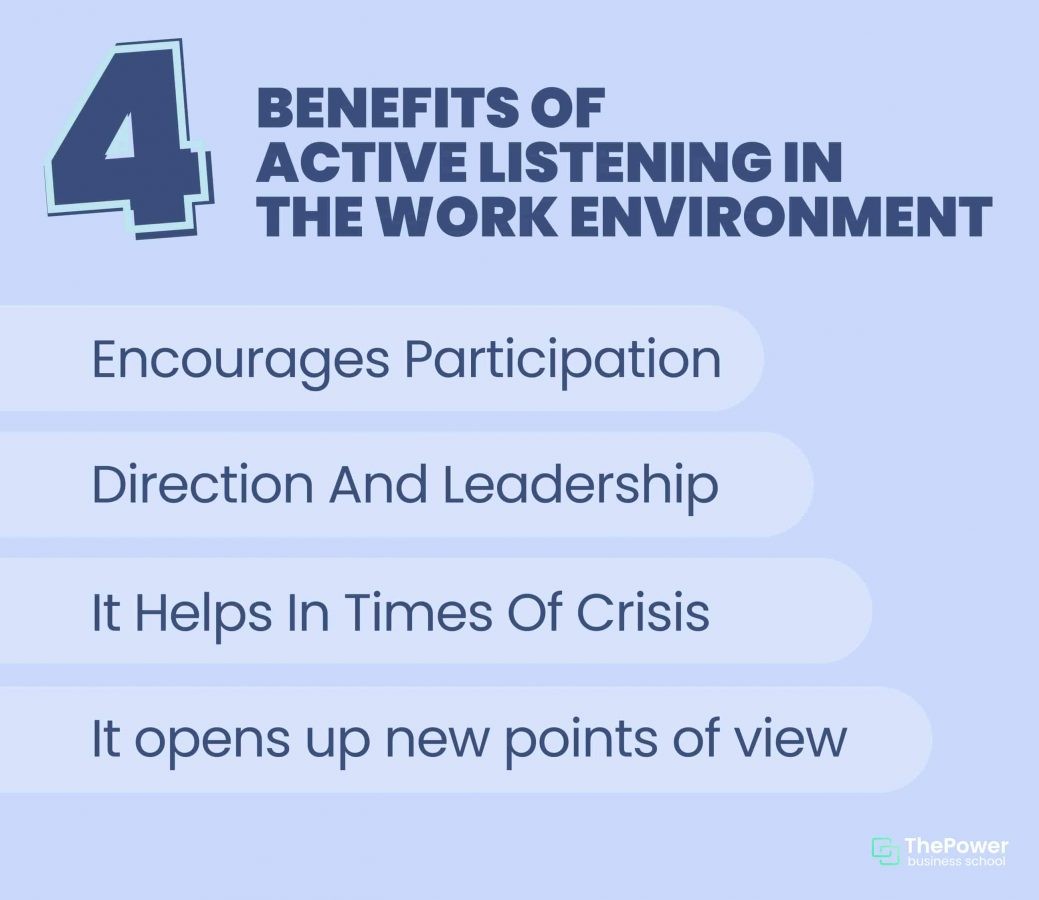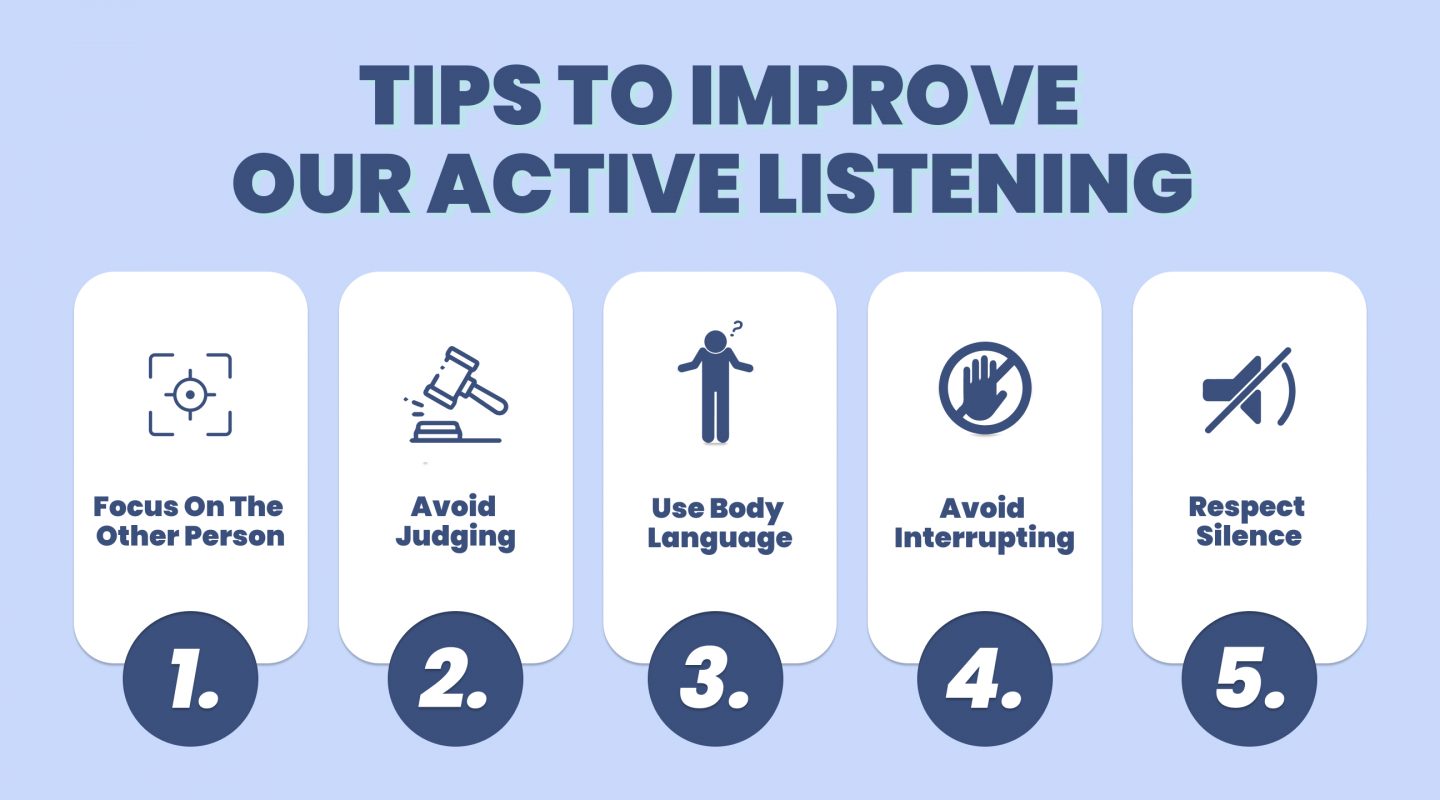Benefits to improve your active listening

Franco Brutti
How often do we really listen? Sometimes we’re merely hearing sounds but not actually listening. If we want to reach real communication with others, we need to know that the first step is to know the difference between hearing (perceiving sounds) and listening (with attention to these sounds).
Today we’re going to talk about a special kind of listening: active listening. Active listening is about being present. Being present and listening carefully to the other person, trying to understand their message. It’s a kind of listening that has to do with care and attention. We must be present, not only physically but also psychologically.
Nowadays, active listening has become one of the most important tools for relationships of any kind. Whether it is to resolve conflicts, maintain conversations that nurture communication, or for work-related relationships.
This is why today we’re going to talk to you about the benefits that active listening has currently for entrepreneurship and business projects. Let’s read and listen carefully!
Why is it important to listen actively?
Many times, when having a conversation, we don’t listen actively to the other person. We’re simply thinking about our argument, the one we’re waiting to release as soon as the other person finishes speaking. This attitude of being a few steps ahead is one of the worst habits we can have as listeners. It doesn’t mean that we agree with what the other person is saying, we must be capable of understanding him or her, and there’s no way to understand the other person if you’re not listening to them.
One of the most common practices within social work is the one related to this type of listening, as it focuses on the attention of a person or a group of people in relation to others, working on the deepening of other points of view and cooperative work.
Active listening is so called precisely because it requires a conscious effort on our part. The aim is to make the interlocutor feel heard and understood. Active listening has to do with listening and understanding, but also with feeling what the other person feels about what they’re saying.
Active listening should not be confused with the strategies that are carried out to make believe that we’re paying attention. Active listening is not about pretending.
How can active listening help in our businesses or workplaces?
The working world is a complex world of human relationships. All workplaces involve more or less frequent communication. Companies are interested in maintaining good management of their work teams. Leadership skills, team management, the ability to solve problems during a crisis; these are all requirements companies tend to look for when looking for leaders or proactive people. Among those elements, the ability to actively listen is very important. Although it’s true that it sometimes goes unnoticed, active listening is one of the skills that nurture the rest of the work communication skills.
If you have a project or an entrepreneurship, we strongly recommend you to use it. Active listening is full of great advantages for your project. Let’s look at four of them.
Four benefits of active listening in the work environment
Encourages participation
To encourage the participation of the members of a project or business, whether they are workers or venture partners, is one of the keys to a company’s success. Active listing, a dialog in which the others’ ideas are valued. There is nothing worse than believing you’re right before debating.
Direction and leadership
Active listening has a very clear benefit: it allows the other person to trust us. The positive response is what will allow us to build better bonds in our businesses.
It helps in times of crises
Times of crises can be very problematic scenarios and they can lead to work-related conflicts that affect the company or the project. Active listening allows the problem to be faced in a more optimistic and positive way. A position that is only defensive is useless. Active listening makes it possible to get to the bottom of the problems and not to take emergency measures in an uncritical manner.
It opens up new points of view
Without active listening, we are depriving ourselves of listening to messages that open us to new points of view. The different perspectives are so valuable that we can’t stop listening to them. Take advantage of active listening to improve your business. It’s never too late to change your perspective or approach.

Five tips to improve our active listening
Now, let's give you the tips you were waiting for to improve your active listening.
Focus on the other person: try to avoid distractions, stop doing whatever else you were doing and simply get involved in the communication.
Avoid judging: we must be aware of the other person 's emotional state. We must avoid letting our emotions surface impulsively, as we must put aside prejudices and show an empathetic attitude.
Use body language: active listening implies that we get involved, even physically. We have to make the other person see that we are present in body and listening. Nor should we forget the body language transmitted by the sender. We must pay attention to the other person's body signals.
Avoid interrupting: active listening is about avoiding behaviours that only make communication impossible. Perhaps it’s an unconscious behavior, that’s why it’s important to be aware of our bad habits when listening.
Respect silence: we wouldn’t be able to talk about sounds if silence didn’t exist. Active listening is possible because we don’t have the need to "fill in" any "hole" in the conversation.

We hope today’s article will help you improve your active listening. Remember this is a process and a change of habits in our relationships. We assure you this tool will not only improve aspects of your work environment, but it’s also essential to lead a better life.
What other benefits can you think of that active listening can bring to the work environment? We'll read you in the comments!
Looking for something specific?






